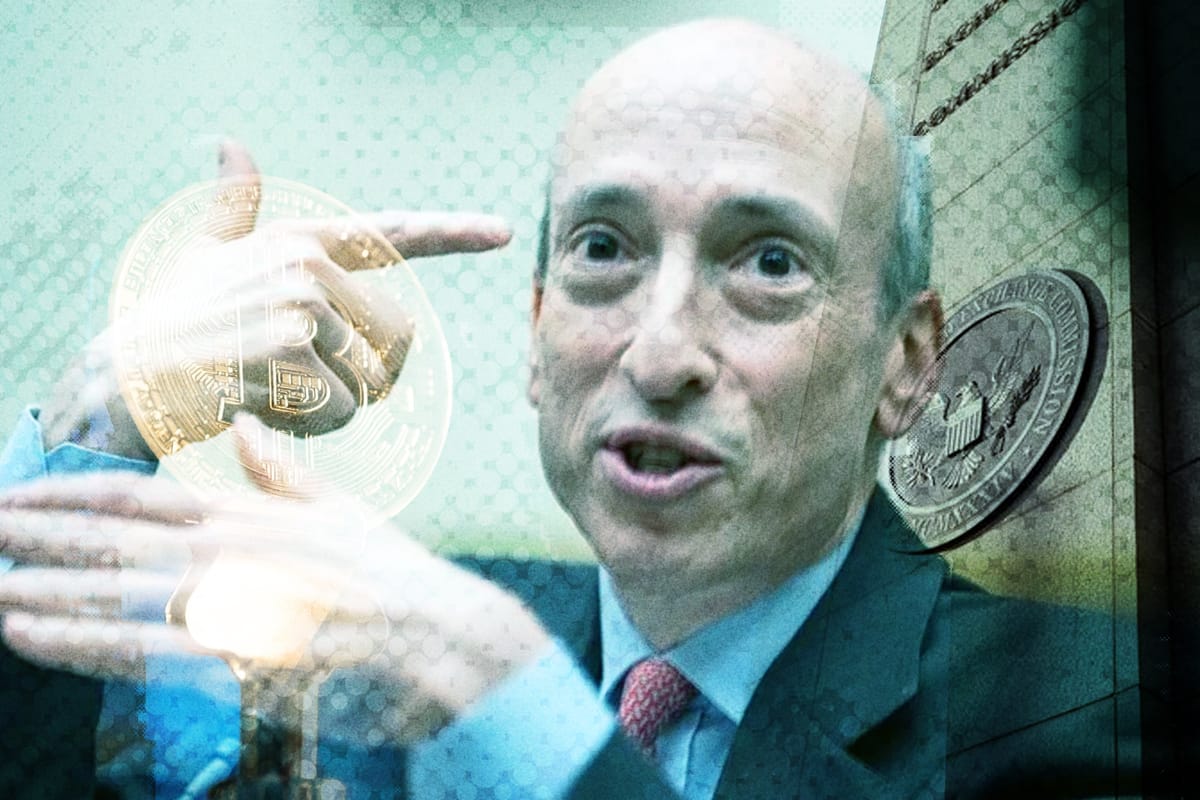
This week, Gary Gensler found himself at the center of intense scrutiny as revelations and controversies surrounding his shifting positions on critical issues, such as contentious SEC guidance and Bitcoin ETF approvals, dominated discussions across both mainstream news and social media.
SEC bulletin should undergo congressional review
U.S. Senator Cynthia Lummis has chalked up another point for the crypto community as the Government Accountability Office (GAO) ruled on October 31 that the U.S. Securities and Exchange Commission's (SEC) "Staff Accounting Bulletin 121," issued in March 2022, should undergo congressional review. It is important to recognize that GAO findings, while technically only recommendations, often influence agency actions.
This decision follows Lummis's letter to the U.S. Comptroller General in August 2022, which prompted the GAO to assess whether the bulletin fell under the Congressional Review Act (CRA). This bulletin had already received swift opposition after its publication, including criticism from SEC Commissioner Hester Peirce, who noted the SEC's role in the associated risks. In June 2022, Senator Lummis and four other Republican senators expressed disapproval, labeling it "backdoor regulation" in a letter to SEC Chair Gary Gensler. Gensler faced additional scrutiny regarding the bulletin when he testified before the House Financial Services Committee in September.
The GAO's report, issued on Tuesday, asserted that the 2022 guidance, criticized by the industry for potentially endangering crypto investors' asset protections, should have been considered a formal rule. The congressional watchdog noted that, according to federal rulemaking procedures, the accounting bulletin should have undergone a different process, including submission to Congress before implementation. It is worth noting, however, that this finding does not directly impact the bulletin's current status as nonbinding SEC policy, as declared by the securities regulators on Tuesday. The GAO said:
“It is reasonable to believe that companies may change their behavior to comply with the staff interpretations found in the Bulletin […] The Bulletin is also of future effect and was designed to interpret and prescribe policy. Accordingly, we conclude that the Bulletin meets the definition of rule under APA.”
The bulletin reflects the staff's perspectives on accounting for an entity's responsibilities in safeguarding crypto-assets held for platform users, as stated by the SEC. It's important to note that staff accounting bulletins do not constitute official Commission rules or interpretations, and they do not carry the Commission's official endorsement. Instead, they convey the staff's interpretations and practices. The bulletin used hypothetical scenarios to recommend the SEC's best practices for safeguarding crypto-assets held by platforms like Coinbase and PayPal. It suggested these platforms should record users' assets on their balance sheets as liabilities and investments at fair value during initial recognition, which departed from prior accounting practices.
"Gary Gensler says Gary Gensler is wrong."
In a recently resurfaced 2019 video, Gary Gensler criticized the SEC for its "inconsistent" approach to Bitcoin products. The video captures a conversation between Gensler and SEC Commissioner Hester Pierce at the 2019 MIT Bitcoin Exp. Gensler highlighted the existence of bitcoin and ether futures products while questioning the absence of spot bitcoin exchange-traded funds (ETFs). He deemed this inconsistency noteworthy, despite recognizing that the laws governing these assets, while not identical, share significant similarities.
Gary Gensler says Gary Gensler is wrong. pic.twitter.com/sHGzHcUyIC
— Zack Voell (@zackvoell) October 28, 2023
Over on X, members of the crypto community have pointed out the stark difference in Gary Gensler's current stance regarding spot bitcoin ETFs. As of today, the SEC has only given the green light to bitcoin and ether futures ETFs.
Spot bitcoin ETF applications have consistently faced rejection by the SEC since 2017, a practice that has been upheld during Gensler's tenure. Gensler has justified this stance by raising concerns about the absence of safeguards against market manipulation in these funds. Notably, under Gensler, the SEC has become embroiled in a legal battle with asset manager Grayscale over its rejection of the proposal to transform its existing bitcoin trust into a spot ETF. The U.S. Court of Appeals has issued a mandate, directing the SEC to review Grayscale Investments' application for a spot bitcoin ETF. This formal mandate, effective October 23, follows the court's initial decision on August 29 and the SEC's failure to appeal by October 13. The court had previously deemed the SEC's decision "arbitrary and capricious."
Gensler attempt at humor highlights deeper issues
Gensler's recent cryptic and out-of-touch Halloween tweet, "If Satoshi Nakamoto went as Satoshi Nakamoto for Halloween, would we be able to tell?", has raised eyebrows in the crypto community, not least for exposing a deeper issue than bad humor; being his apparent disconnect from the industry. As Chairman of the SEC, his leadership approach has often been viewed as disconnected from the rapidly evolving digital asset landscape. Rather than embracing innovation and promoting safe practices, the regulatory framework under his purview is perceived as creating roadblocks without necessarily enhancing investor safety.
The tweet, which attempts to blend celebration with admonition, underscores this disjointed approach and reflects a regulatory mindset that seems more intent on hindering progress than understanding and supporting the crypto sector. Moreover, this disconnect is particularly evident when juxtaposed with the industry's pressing need for modernized and effective regulatory strategies.

